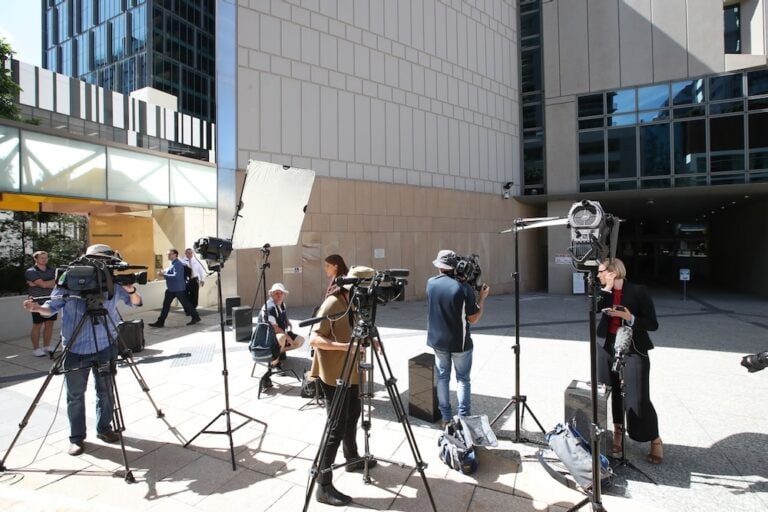(MEAA/IFEX) – The following is an MEAA media release: Anti-terror legislation threatens freedom of expression The federal government is rushing through anti-terror legislation that threatens freedom of expression, says Australia’s media and entertainment union. “The federal government has created laws that will radically alter the nature of public debate in this country. The laws draw […]
(MEAA/IFEX) – The following is an MEAA media release:
Anti-terror legislation threatens freedom of expression
The federal government is rushing through anti-terror legislation that threatens freedom of expression, says Australia’s media and entertainment union.
“The federal government has created laws that will radically alter the nature of public debate in this country. The laws draw on communities’ fear to create a state where government, police and judiciary will be able to act without accountability,” said Media Entertainment & Arts Alliance federal secretary, Christopher Warren.
Sedition too broad
Broadly defined sedition provisions within the proposed legislation will unreasonably erode freedom of speech and artistic expression. Any person or organisation could be charged with sedition without, as the existing law requires, having urged force or violence.
“Essentially a journalist who reports a story or publishes comment against the actions of the government, police or judiciary, could be charged under these sedition laws,” said Warren.
“The same goes for a performer or filmmaker involved in a production that spins an anti-government polemic.
“The current law already prohibits inciting crimes, membership and funding of terrorist organisations, and racial vilification. There is no need to stifle free speech. We call on the Government to urgently remove this provision from the legislation.”
Jail for reporting the truth
Under the Bill, the Australian Federal Police can request for any person to be put on a preventative detention or control order. However, the legislation also places restrictions on reporting details about a person in preventative detention. A journalist who reveals that a person has been detained, the length of the detention or any other information relating to the order, faces five years’ imprisonment.
“It is an exaggerated penalty aimed to silence journalists – to intimidate them into submission and allow miscarriages of justice to go unquestioned and inevitably unnoticed,” said Warren.
Coercion to reveal sources
The media’s ability to do their job is further crippled by the police’s increased power to obtain documents, which may relate to a serious terrorism offence. Notice to produce provisions will allow the AFP to force journalists to hand over information, including the identity of confidential sources, if those documents will help in the investigation of a serious terrorism offence.
“However it will be very difficult to argue that it isn’t relevant to an offence when the fine for refusing to comply is $3,300. To add injury to insult, a journalist who discloses that they’ve received a notice or the contents of it will incur a fine of $13,200,” Warren said.
[Prime Minister John] Howard wants to pass this law as quickly as possible. The federal government has agreed to a two-week Senate inquiry into the legislation, which is inadequate time considering the scope and gravity of what is being proposed.
The Alliance urges both houses of Parliament to take the time to consider the significant ramifications this legislation will have on public debate, freedom of expression and ultimately Australian democracy.


